Unlocking Your Health Data: Top Open mHealth Alternatives
Open mHealth is a robust platform designed to standardize, store, and integrate health data from various sources, making it easier for developers to build applications and analyze information. Its focus on structured health data, RESTful API, and open-source adapters for third-party services like RunKeeper, Fitbit, Google, and Apple Health has made it a go-to for many. However, depending on your specific needs—whether it's a more user-friendly interface, broader integration, or different data analysis capabilities—you might be looking for an Open mHealth alternative. This article explores some of the best platforms that offer similar functionalities with their own unique advantages.
Top Open mHealth Alternatives
Finding the right platform to manage and make sense of your health data is crucial. Here are some excellent alternatives to Open mHealth, each offering distinct features and catering to different user requirements.

Exist
Exist allows you to track your life with advanced analytics across multiple services, including Fitbit and Jawbone UP. While Open mHealth focuses on developers and data standardization, Exist provides a more user-centric experience for personal data aggregation and analytics, making it a strong Open mHealth alternative for individuals interested in quantified self and automatic tracking.

Google Fit
Google Fit is a health-tracking platform developed by Google for Android, offering a single set of APIs to blend data from multiple apps and devices. Similar to Open mHealth's data integration capabilities, Google Fit excels in connecting various health sources, providing features like calorie counting, GPS tracking, and heart rate monitoring, all within the Google ecosystem, making it a powerful free alternative for Android users.
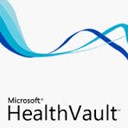
Microsoft HealthVault
Microsoft HealthVault allows you to store health information from many sources in one online location. Like Open mHealth, it aims to centralize health data, but with a stronger focus on personal health records and accessibility for individuals and their families. It's a free, web-based platform with Android and iPhone apps, providing a robust personal health data management system.

GooPatient
GooPatient is a free and simple software for personal health records, including an Electronic Medical Card and Health Journal. While Open mHealth is a comprehensive platform for data standardization and integration, GooPatient offers a more straightforward, personal record-keeping solution for Windows users, ideal for those seeking a basic, desktop-based health journal.

Drugs.com
Drugs.com provides comprehensive prescription drug information and news for professionals and consumers. While not a direct Open mHealth alternative for data aggregation, it serves as a crucial resource for drug-related health information. It's a free web platform with mobile apps, valuable for anyone needing reliable medication details, complementing other health data platforms.

WebMD
WebMD is a leading source for trustworthy and timely health and medical news and information. Similar to Drugs.com, it doesn't offer data storage or API capabilities like Open mHealth but provides essential health information. It's a free web platform with mobile apps, serving as a key resource for health education and general medical queries.
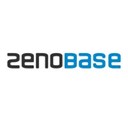
Zenobase
Zenobase helps store and visualize data from various sources such as Dropbox, Fitbit, and Jawbone, assisting in data correlation. While Open mHealth provides the underlying infrastructure for health data, Zenobase offers a more user-friendly interface for visualizing and correlating data from disparate sources, making it a great freemium web-based alternative for data enthusiasts.
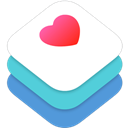
Apple HealthKit
HealthKit allows apps that provide health and fitness services to share their data with the new Health app and with each other. For iOS and Apple ecosystem users, HealthKit is the primary Open mHealth alternative for integrating and centralizing health data. It offers developer tools, goal tracking, and heart rate monitor integration, providing a robust platform native to Apple devices.
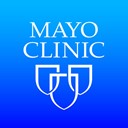
Mayo Clinic
The official website of Mayo Clinic provides information about diseases and symptoms fact-checked by the Clinic's own experts. Similar to WebMD and Drugs.com, Mayo Clinic is an informational resource rather than a data integration platform like Open mHealth. It's a free web platform with mobile apps, offering authoritative medical knowledge for public consumption.
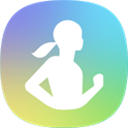
Samsung Health
Samsung Health provides core features to keep your body fit and healthy, recording and analyzing daily activities to help maintain a successful diet. As a platform similar to Google Fit and Apple HealthKit, Samsung Health is an excellent Open mHealth alternative for users within the Samsung ecosystem, offering comprehensive fitness and health tracking on Android and iPhone devices.
The best Open mHealth alternative for you will depend on your specific requirements. Whether you're a developer looking for robust APIs and data standardization, an individual seeking personal health record management, or simply someone wanting to integrate and visualize their fitness data, there's an option available. Explore these alternatives to find the perfect fit for your health data journey.